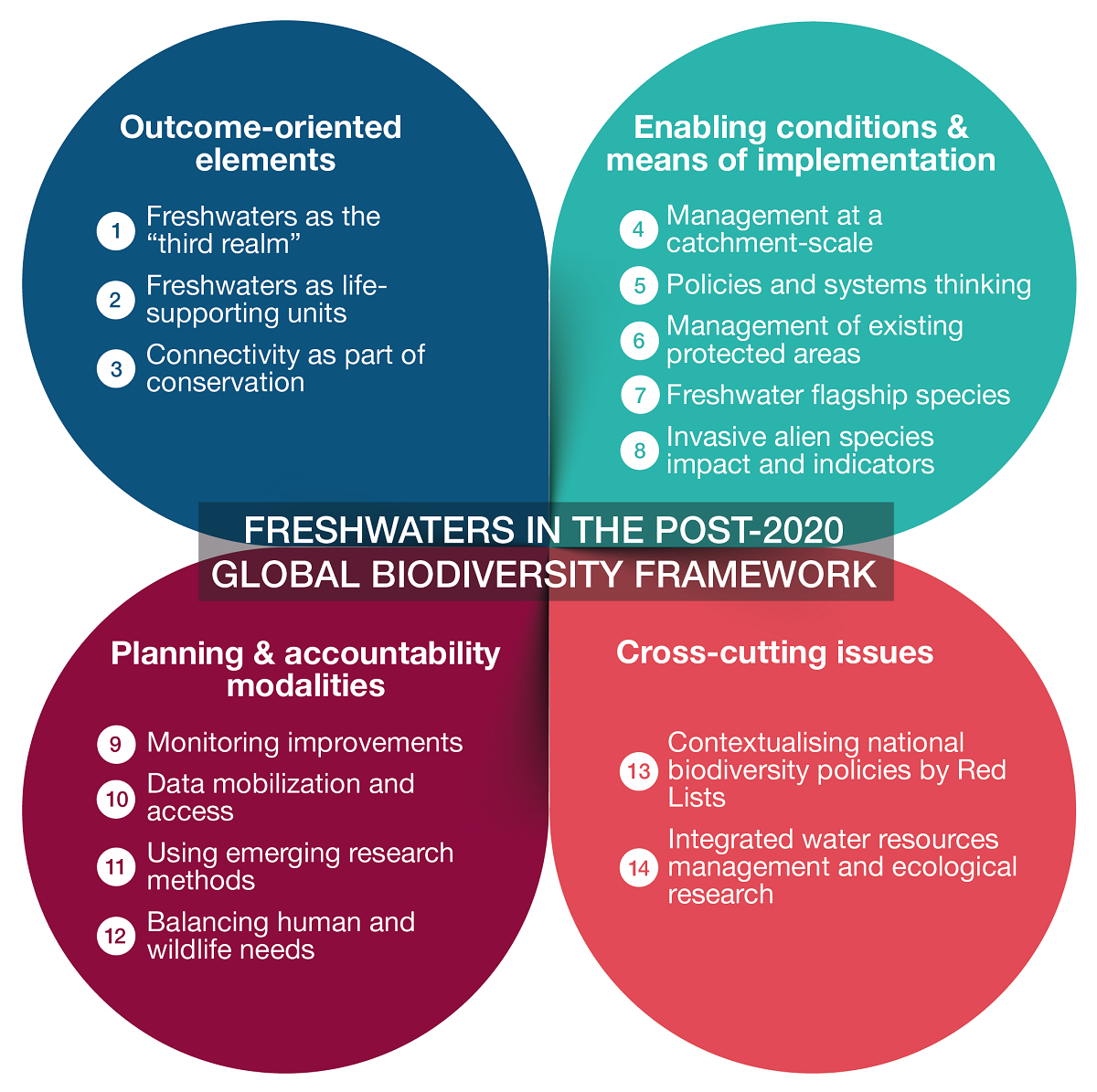Plans are currently being drafted for the next decade of action on biodiversity – both the post-2020 Global Biodiversity Framework of the Convention on Biological Diversity (CBD) and Biodiversity Strategy of the European Union (EU). Freshwater biodiversity is disproportionately threatened and under-prioritized relative to the marine and terrestrial biota, despite supporting a richness of species and ecosystems with their own intrinsic value and providing multiple essential ecosystem services. Future policies and strategies must have a greater focus on the unique ecology of freshwater life and its multiple threats, and now is a critical time to reflect on how this may be achieved. We identify priority topics including environmental flows, water quality, invasive species, integrated water resources management, strategic conservation planning, and emerging technologies for freshwater ecosystem monitoring. We synthesize these topics with decades of first-hand experience and recent literature into 14 special recommendations for global freshwater biodiversity conservation based on the successes and setbacks of European policy, management and research. Applying and following these recommendations will inform and enhance the ability of global and European post-2020 biodiversity agreements to halt and reverse the rapid global decline of freshwater biodiversity.

